- You are here:
- Home »
- Food Substitutes
- » Best Substitutes For Baking Powder
Best Substitutes For Baking Powder
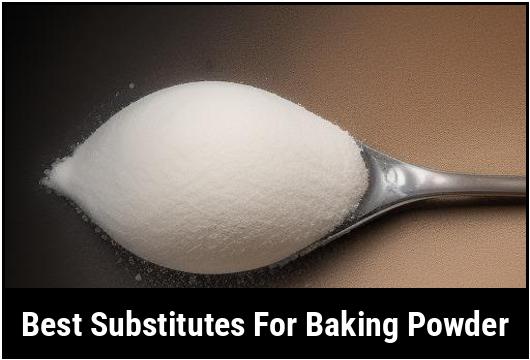
Baking powder is a common leavening agent used in baking to add volume and lighten the texture of baked goods. It is a combination of baking soda, an acid, and a neutralizing agent. However, there may be times when you run out of baking powder or prefer not to use it due to dietary restrictions or personal preferences. In such cases, it is important to know about suitable substitutes that can still yield delicious results. This article will explore the best substitutes for baking powder and provide tips on how to use them effectively.
Key Takeaways
- Baking powder is a leavening agent used in baking to help dough and batter rise.
- When you run out of baking powder or cannot use it, there are several alternatives available.
- Common substitutes for baking powder include baking soda, cream of tartar, lemon juice, vinegar, buttermilk, and yogurt.
- It is important to choose the right substitute based on the desired outcome and the other ingredients in the recipe.
- Adjustments may be needed when using substitutes for baking powder, such as adjusting the amount of acidic ingredients or adding additional leavening agents.
Why You Need A Substitute For Baking Powder
There are several reasons why you may need to find a substitute for baking powder.
Firstly, you may simply run out of baking powder while in the middle of a baking project. This can be frustrating, especially when you’re pressed for time or unable to make a quick trip to the store. Knowing suitable alternatives can save you from the disappointment of having to abandon your baking plans.
Secondly, you may have dietary restrictions or preferences that require you to avoid using baking powder. Some individuals are allergic to the ingredients in baking powder, such as cornstarch, or may be following a gluten-free or corn-free diet. In such cases, finding substitutes that meet your dietary needs is essential.
Finally, you may want to experiment with different flavors and textures in your baked goods. By using substitutes for baking powder, you can achieve different results, such as a more tangy flavor or a denser texture, depending on the substitute used. This can help you create unique and delicious treats.
Types Of Substitutes For Baking Powder
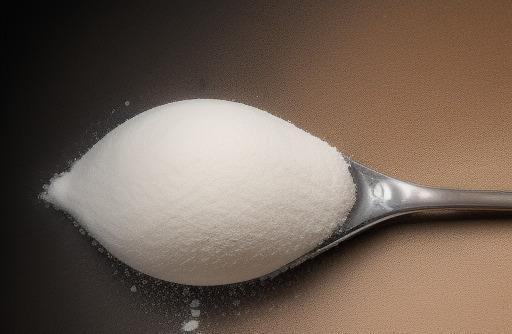
When searching for a substitute for baking powder, it is important to understand the different types available. The most common substitutes for baking powder include:
-
Baking Soda: Baking soda is a leavening agent that requires an acidic ingredient to activate it. It is commonly used in recipes that already contain an acidic ingredient, such as buttermilk or lemon juice.
-
Cream of Tartar: Cream of tartar is a byproduct of winemaking and is often used as a stabilizing agent. When combined with baking soda, it acts as a leavening agent and can replace baking powder.
-
Lemon Juice: Lemon juice is acidic and can help activate baking soda. It adds a subtle citrus flavor to baked goods and can be used as a substitute for baking powder in certain recipes.
-
Vinegar: Vinegar, particularly white vinegar or apple cider vinegar, can also be used as a substitute for baking powder. Like lemon juice, vinegar provides acidity to react with baking soda and create carbon dioxide gas for leavening.
-
Buttermilk: Buttermilk is a fermented dairy product that adds a tangy flavor to baked goods. It can be used as a substitute for baking powder when combined with baking soda.
-
Yogurt: Yogurt, especially plain yogurt, is another dairy product that can be used to replace baking powder. It provides acidity and moisture to baked goods, leading to a lighter texture.
Each of these substitutes has its own unique properties and can produce different results. It is important to choose the right substitute based on your desired outcome and the other ingredients in your recipe.
Best Substitutes For Baking Powder
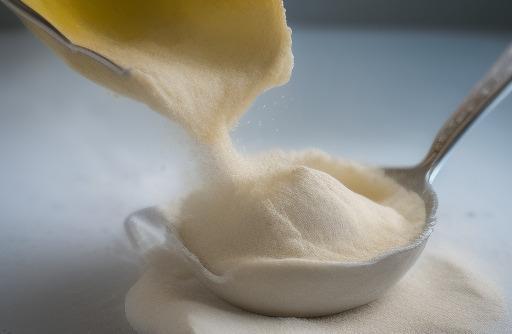
-
Baking Soda
Baking soda is one of the most commonly used baking powder substitutes. It is a leavening agent that reacts with acidic ingredients to create carbon dioxide gas, which helps dough and batter rise. When using baking soda as a substitute for baking powder, keep the following tips in mind:
- Use 1/4 teaspoon of baking soda for every 1 teaspoon of baking powder called for in the recipe.
- Add an acidic ingredient, such as buttermilk, yogurt, or lemon juice, to activate the baking soda.
- Make sure to mix the baking soda with the acidic ingredient just before using, as the reaction occurs immediately.
- Adjust the amount of acidic ingredient in the recipe if necessary to maintain the appropriate balance.
Pro Tip:
Avoid using baking soda as a substitute for baking powder in recipes that do not contain any acidic ingredients. Without an acid to activate the baking soda, your baked goods may end up dense and flat.
-
Cream of Tartar
Cream of tartar is another popular substitute for baking powder. It is the acid component of baking powder and can be combined with baking soda to create a similar leavening effect. To use cream of tartar as a substitute for baking powder, follow these guidelines:
- Use 1/2 teaspoon of cream of tartar and 1/4 teaspoon of baking soda for every 1 teaspoon of baking powder called for in the recipe.
- Combine the cream of tartar and baking soda together and mix thoroughly.
- Only mix the cream of tartar and baking soda just before adding them to the recipe, as the reaction occurs immediately.
- Adjust the amount of cream of tartar and baking soda mixture if necessary to maintain the appropriate balance.
Pro Tip:
Cream of tartar is particularly useful as a baking powder substitute in recipes with a low pH, such as those containing buttermilk or sour cream. However, it may not provide sufficient leavening in recipes requiring a larger volume of rise, so use it with caution in such cases.
-
Lemon Juice
Lemon juice is a versatile substitute for baking powder that adds a subtle citrus flavor to baked goods. It provides the necessary acidity to activate baking soda and create carbon dioxide gas. Here’s how to use lemon juice as a substitute for baking powder:
- Use 1/2 teaspoon of lemon juice in place of 1 teaspoon of baking powder.
- Add the lemon juice directly to the other liquid ingredients in the recipe.
- Adjust the amount of lemon juice if necessary to maintain the desired balance of flavors.
Pro Tip:
When using lemon juice as a substitute for baking powder, ensure that the recipe does not contain any other acidic ingredients. Too much acidity can affect the taste and texture of your baked goods.
-
Vinegar
Vinegar, especially white vinegar or apple cider vinegar, can also be used as a substitute for baking powder. It provides the necessary acidity to react with baking soda and help your baked goods rise. Follow these guidelines when substituting vinegar for baking powder:
- Use 1/2 teaspoon of vinegar in place of 1 teaspoon of baking powder.
- Add the vinegar directly to the other liquid ingredients in the recipe.
- Adjust the amount of vinegar if necessary to maintain the desired acidity.
Pro Tip:
White vinegar is a neutral-tasting option, while apple cider vinegar adds a subtle fruity flavor to your baked goods. Choose the type of vinegar that complements the other flavors in your recipe.
-
Buttermilk
Buttermilk is a tangy and creamy dairy product that works well as a substitute for baking powder. It contains lactic acid, which reacts with baking soda to provide leavening. When using buttermilk as a substitute for baking powder, consider the following:
- Use 1/2 cup of buttermilk and 1/4 teaspoon of baking soda for every 1 teaspoon of baking powder called for in the recipe.
- Combine the buttermilk and baking soda together and mix thoroughly.
- Adjust the amount of buttermilk and baking soda mixture if necessary based on the other ingredients in your recipe.
Pro Tip:
If you don’t have buttermilk on hand, you can make a substitute by mixing 1 cup of milk with 1 tablespoon of lemon juice or vinegar. Let the mixture sit for 5-10 minutes until it thickens slightly before using it in your recipe.
-
Yogurt
Yogurt, particularly plain yogurt, can be used as a substitute for baking powder. It provides acidity and moisture to the baked goods, resulting in a lighter texture. Here’s how to incorporate yogurt as a baking powder substitute:
- Use 1/2 cup of yogurt and 1/4 teaspoon of baking soda for every 1 teaspoon of baking powder called for in the recipe.
- Mix the yogurt and baking soda together until well combined.
- Adjust the amount of yogurt and baking soda mixture if necessary based on the other ingredients in your recipe.
Pro Tip:
Greek yogurt is a good option when substituting for baking powder, as it is thicker and tangier. If using regular yogurt, you may need to adjust the amount slightly to maintain the desired consistency of the batter.
Choosing The Right Substitute For Baking Powder
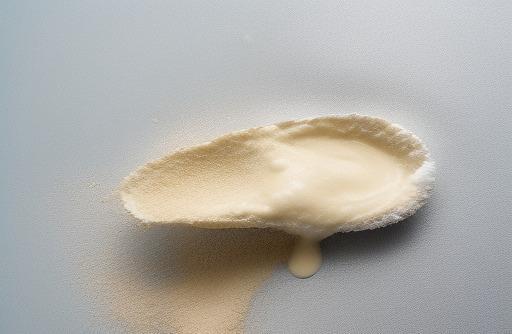
When selecting a substitute for baking powder, it is important to consider the desired outcome and the other ingredients in your recipe. Some important factors to consider include:
-
Flavor: Each substitute has its own unique flavor profile, which may affect the taste of your baked goods. Lemon juice and vinegar add a tangy flavor, while buttermilk and yogurt contribute a creamy tang. Cream of tartar does not significantly alter the flavor.
-
Texture: Baking powder provides a light and fluffy texture to baked goods. Some substitutes, such as baking soda and cream of tartar, can replicate this texture effectively. However, substitutes like lemon juice, vinegar, buttermilk, and yogurt may result in a denser texture.
-
Reactiveness: Baking soda requires an acidic ingredient to activate it, while cream of tartar and lemon juice provide their own acidity. Vinegar, buttermilk, and yogurt also contain acidity. Make sure to choose a substitute that balances the acidity in your recipe to ensure proper leavening.
-
Quantity: The quantity of the substitute needed may vary depending on the recipe. Baking soda generally requires only 1/4 teaspoon for every teaspoon of baking powder, while cream of tartar and lemon juice require 1/2 teaspoon to replace 1 teaspoon of baking powder. Adjust the amount as necessary to achieve the desired results.
By considering these factors, you can choose the right substitute for baking powder that aligns with your preferences and the specific requirements of your recipe.
Cooking With Substitutes For Baking Powder
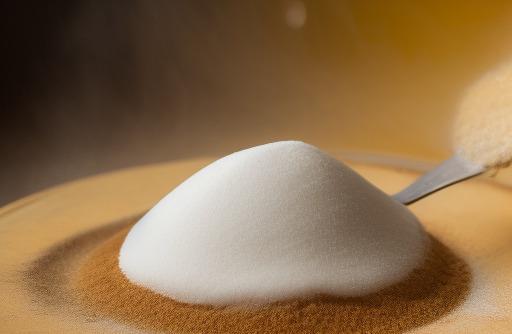
When using substitutes for baking powder, it is important to make some adjustments to ensure the desired results. Here are a few tips to keep in mind:
-
Adjust the acidity: Since baking powder already contains an acid, using a substitute may require you to adjust the acidity in your recipe. If your recipe includes other acidic ingredients, such as buttermilk or lemon juice, you may need to reduce the amount to avoid an overly acidic taste.
-
Add additional leavening agents: Substituting for baking powder may result in a less fluffy texture. To compensate for this, you can try adding extra leavening agents, such as baking soda or cream of tartar, to help the dough rise. Start with small quantities and adjust as needed.
-
Mix the acidic ingredients last: If your recipe includes both baking soda and an acidic ingredient, such as buttermilk or lemon juice, mix them together just before using to ensure the reaction occurs at the right time. This will prevent the carbon dioxide gas from escaping before it has a chance to leaven the batter.
-
Test the rise: Keep in mind that some substitutes may not provide the same level of leavening as baking powder. To ensure your baked goods rise properly, do a test batch before making larger quantities.
-
Take note of flavor changes: Substituting for baking powder may alter the taste of your baked goods. Pay attention to any flavor changes and adjust the other ingredients accordingly to maintain a balanced and enjoyable flavor profile.
By following these tips, you can successfully use substitutes for baking powder in your recipes and achieve delicious results.
Recipes Using Substitutes For Baking Powder
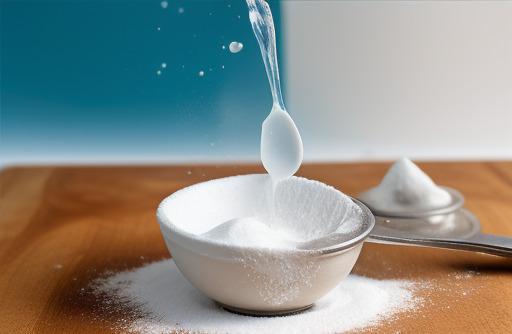
Here are a couple of recipes that demonstrate how to use substitutes for baking powder effectively:
1. Pancakes
Ingredients:
- 1 cup all-purpose flour
- 1 tablespoon sugar
- 1/2 teaspoon baking soda
- 1/2 teaspoon cream of tartar
- 1/4 teaspoon salt
- 1 cup milk
- 1 egg
- 2 tablespoons melted butter
Instructions:
- In a mixing bowl, whisk together the flour, sugar, baking soda, cream of tartar, and salt.
- In a separate bowl, whisk together the milk, egg, and melted butter.
- Pour the wet ingredients into the dry ingredients and stir until just combined.
- Heat a griddle or non-stick skillet over medium heat. Ladle the pancake batter onto the griddle, using approximately 1/4 cup for each pancake.
- Cook until bubbles appear on the surface of the pancake, then flip and cook for an additional 1-2 minutes, or until golden brown.
- Serve with your favorite toppings.
In this recipe, cream of tartar is used in combination with baking soda to provide leavening. The pancakes will have a light and fluffy texture.
2. Lemon Blueberry Muffins
Ingredients:
- 2 cups all-purpose flour
- 1/2 cup sugar
- 2 teaspoons baking powder
- 1/2 teaspoon baking soda
- 1/2 teaspoon salt
- 1/2 cup lemon juice
- 1/4 cup vegetable oil
- 1/4 cup buttermilk
- 1 egg
- 1 teaspoon vanilla extract
- 1 cup fresh blueberries
Instructions:
- Preheat the oven to 375°F (190°C) and line a muffin tin with paper liners.
- In a large mixing bowl, whisk together the flour, sugar, baking powder, baking soda, and salt.
- In a separate bowl, whisk together the lemon juice, vegetable oil, buttermilk, egg, and vanilla extract.
- Pour the wet ingredients into the dry ingredients and stir until just combined.
- Gently fold in the blueberries.
- Divide the batter evenly among the muffin cups, filling each about 3/4 full.
- Bake for 18-20 minutes, or until a toothpick inserted into the center comes out clean.
- Allow the muffins to cool in the tin for a few minutes before transferring them to a wire rack to cool completely.
In this recipe, lemon juice is used as a substitute for baking powder, providing the necessary acidity to activate the baking soda. The muffins will have a slight tang and a denser texture.
Storage And Shelf Life Of Substitutes
When using substitutes for baking powder, it is important to keep in mind their storage and shelf life. Here are some guidelines:
-
Baking Soda: Store baking soda in a cool, dry place, away from moisture and strong odors. It has an indefinite shelf life but may lose its potency over time. To test its effectiveness, mix 1/4 teaspoon of baking soda in 2 tablespoons of vinegar. If it produces a vigorous reaction, it is still usable.
-
Cream of Tartar: Store cream of tartar in an airtight container in a cool, dry place. When stored properly, it can last for up to 3 years.
-
Lemon Juice and Vinegar: Store lemon juice and vinegar in their respective bottles in a cool, dry place. Check the expiration date on the packaging for guidance on shelf life.
-
Buttermilk: Store buttermilk in the refrigerator and use within 1-2 weeks of opening. If you have mixed your own buttermilk substitute with milk and lemon juice or vinegar, use it within 5-7 days.
-
Yogurt: Store yogurt in the refrigerator and check the expiration date on the packaging for guidance on shelf life. Use it within the recommended time frame.
By properly storing these substitutes, you can ensure their effectiveness and extend their shelf life.
Conclusion
When baking, having a substitute for baking powder can be a lifesaver in a pinch or a way to experiment with different flavors and textures. Baking soda, cream of tartar, lemon juice, vinegar, buttermilk, and yogurt are all excellent substitutes for baking powder, each with its own unique properties. By choosing the right substitute and making necessary adjustments, you can still achieve delicious and satisfying results in your baking endeavors. So the next time you find yourself without baking powder or wanting to try something new, reach for one of these substitutes and let your creativity soar in the kitchen.
Remember to always test a small batch first when using a substitute to ensure you achieve the desired results. Happy baking!
FAQS
What Is Baking Powder And Why Would Someone Need A Substitute?
Baking powder is a leavening agent used in many baked goods to help them rise. Sometimes people might need a substitute for baking powder if they have run out or if they want to avoid the cornstarch commonly found in commercial baking powder.
What Are Some Common Substitutes For Baking Powder?
Cream of tartar, lemon juice, vinegar, and baking soda are common substitutes for baking powder. Each of these ingredients has acidic properties that can activate baking soda and create a leavening effect in baked goods.
How Much Cream Of Tartar Should Be Used As A Substitute For Baking Powder?
To substitute cream of tartar for baking powder, use 1/4 teaspoon of cream of tartar plus 1/4 teaspoon baking soda for every 1 teaspoon of baking powder called for in the recipe.
How Should Lemon Juice And Vinegar Be Used As Substitutes For Baking Powder?
To substitute lemon juice or vinegar for baking powder, use 1/2 teaspoon of lemon juice or vinegar plus 1/4 teaspoon baking soda for every 1 teaspoon of baking powder called for in the recipe. Be cautious using vinegar, as it can give a sour flavor.
Can A Combination Of Baking Soda And Cream Of Tartar Be Used As A Substitute For Baking Powder?
Yes, combining 1/4 teaspoon baking soda with 1/2 teaspoon cream of tartar can be used as a substitute for 1 teaspoon of baking powder. This mixture will create a leavening effect when added to a recipe with acidic components.
Sources
About the Author Jenny
I'm Jenny, a housewife with an unwavering passion for food. My culinary journey began with my grandmother's kitchen, and it's now a full-fledged food blog. I've turned my love for cooking into a creative outlet, sharing recipes and stories with a global community of fellow food enthusiasts. It's proof that being a housewife can also mean pursuing your passions and savoring life's delectable moments.
